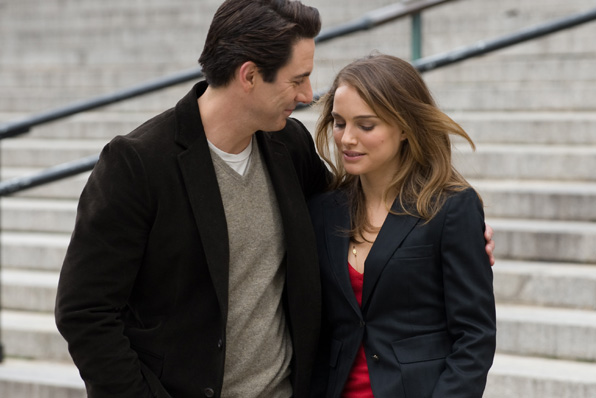|
Reviews of Recent Independent, Foreign, & Documentary Films in Theaters and DVD/Home Video

THE OTHER WOMAN Movies have shocked viewers by taking the points of view of killers, terrorists, and pedophiles, but a sympathetic portrait of a stepmother may be the last shibboleth to fall in fiction, a timely victim of the growing numbers of modern blended families. The Other Woman emotionally stacks the deck to challenge the negative stereotype. In Natalie Portman’s third film showing simultaneously on screens now, she fetchingly looks the part of the dreaded second wife, Emilia Greenleaf, though she’s not just a trophy. In early flashbacks, she’s seen seducing handsome older partner Jack Woolf (Scott Cohen) at her Manhattan law firm. She even dresses provocatively in front of his toddler son, William (Charlie Tahan), and wife, Carolyn (Lisa Kudrow), the host for the firm’s holiday party in the Woolfs’ luxurious apartment. On his duplicitous part, Jack’s experienced at trumping up a work excuse so he can take his young, beautiful associate to an out-of-town hotel. The sharp dialogue from the novel Love and Other Impossible Pursuits by Ayelet Waldman, doyenne of what she calls “maternal ambivalence,” translates effectively into Emilia’s witty awareness of the threat she poses to the first wives and nannies at the competitive preschool where her now-husband makes her pick up his preternaturally precocious son. Emilia herself had to deal with the divorce of her parents (Michael Cristofer and Debra Monk), so it seems odd that none of the other Upper East Side families are tangled in divorce. Audiences will doubtlessly react based on personal experiences with “the other woman.” However, the film moves beyond the simplistic revenge humor of The First Wives Club (1996) and The Starter Wife (2007) or the treacle of Stepmom (1998). When the very verbal little boy (somewhat) innocently rips off the bandage that poignantly reveals Emilia’s pain and guilt, there’s a shift into grief counseling mode that comes close to turning it into an old-fashioned, four-hanky movie, though a healing “Walk to Remember” in Central Park unexpectedly has the opposite effect on this fractured family. Unlike writer/director Don Roos’s indie films (1998’s The Opposite of Sex and 2005’s Happy Endings), his mainstream Bounce (2000) faced scathing criticism for editing out grief and guilt based on test audience reactions. Here, he very cautiously walks that line of pandering to the audience by casting his frequent co-star, Kudrow, as a harridan. The bitter ex-wife transmits her fury as a woman scorned into satiric overprotectiveness and hysterical overreaction (with a jarring, negative implication that she’s a Jewish mother). Cast against her usual appealing type, Kudrow pulls off the difficult, crucial scene where Carolyn’s professionalism as a doctor battles with her feelings as a mother and divorcée. The story closely follows the book,
despite confusingly compressed timetables of pregnancies, divorce,
miscarriages, marriages, birth, and death. That Emilia and Jack’s sexual chemistry never quite rises to the sense of
true love makes The Other Woman more affectingly honest about
contemporary, complicated parenthood than a traditional chick flick love
story.
Nora Lee Mandel
|

